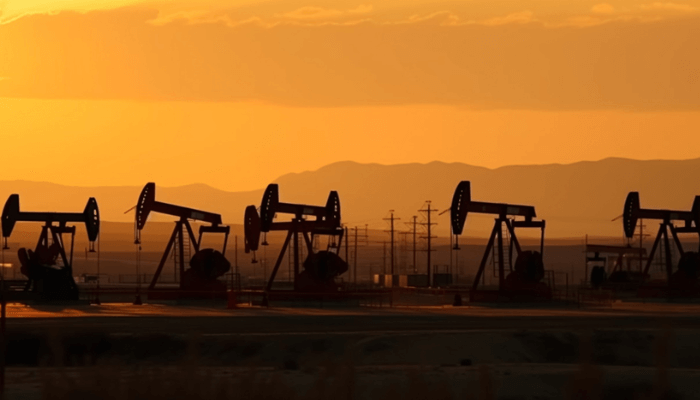Kuwait has announced a bold $33 billion investment plan to boost its oil production capacity but Nigeria grapples with a myriad of challenges in its oil sector. Findings showed Kuwait Petroleum Corporation (KPC), the equivalent of Nigeria National Petroleum Company (NNPC), targets a production capacity of 3.2 million barrels a day next year, and ultimately 4 million barrels a day by 2035. ...Tap To Read The Full Story Here | ..Tap To Read The Full Story Here...
“We’re looking to make massive investments,” Nawaf Al-Sabah, chief executive officer at KPC said in an interview with Bloomberg. That’s “not only to maintain our production capacity but ultimately grow it like our strategy calls for us to do.”
Kuwait’s bullish demand outlook chimes with several other producers and traders such as TotalEnergies SE and Vitol Group.
“The market in oil demand — looking to 2050 and beyond — will continue to be more or less where it is now,” Al-Sabah said. “Who’s going to supply that oil? We are both lowest cost and lowest carbon intensity, and we intend to remain there.”
Kuwait is already among the world’s top 10 producers, pumping just under 2.5 million barrels a day. That puts it ahead of Organisation of Petroleum Exporting Countries peers, including Nigeria and Libya.
“You need to replace at least 3 million barrels a day of production capacity per year from existing fields worldwide,” Al-Sabah said. That means “bringing out a new Kuwait every year.”
The investment programme requires KPC to take on more debt. It uses a revolving credit facility for day-to-day operations and is studying other funding options — including possible deals for stakes in its pipelines — for future projects.
“I’m looking at where the cheapest money is going to come from,” he said. “If it comes from a pipeline monetisation deal, which would be opened to domestic and foreign investors — like what Adnoc and Aramco did recently — I’ll pursue that.” Any such agreement would likely be done through “lease and leasebacks,” he said.
KPC has multiple sources of financing, though tapping equity markets — as Saudi Aramco has, according to Al-Sabah.
One idea it’s already pursuing is letting local, non-state companies undertake many of the non-core activities such as chemical production, Al-Sabah said.
Kuwait initially planned to pump four million barrels a day in 2020, but the target was pushed back several times. The country previously reached 3.2 million barrels a day capacity, later scaling it back amid a slump in oil prices and a lack of technical expertise. Now, it’s returning to those goals on a belief that the energy transition will be a very gradual process.
In contrast, Nigeria, once a major oil producer, is facing declining production due to factors such as pipeline vandalism, theft, and underinvestment.
Nigeria’s oil sector is a shadow of its bustling self as foreign direct investment (FDI) plummets from billions of dollars to mere trickles in millions.
The FDI in the sector fell to less than half a billion dollars in the first half of 2023, with the full-year figure unlikely to match a peak of $22.5 billion in 2019.
When an oil executive said Nigeria needed $25 billion per annum in investments to be able to achieve a production target of 2 million barrels daily, the task at hand for Nigeria came into better perspective.
The 2010s witnessed a period of significant FDI from international companies eager to tap into the country’s vast oil and gas reserves as the future for Nigeria’s nascent indigenous upstream oil and gas industry looked bright, almost dazzlingly so.
In 2014, Nigeria attracted the largest amount of FDI of any African country, with inflows exceeding $22.1 billion. This influx of capital fuelled major projects, including deepwater exploration and development of new oil fields.
A lot has changed since then. The country’s appeal has been tarnished by security problems that have only worsened since.
Experts argue that Nigeria must prioritise investment in infrastructure, technology, and human capital to revitalise its oil sector and secure its economic future.
“Kuwait is a country of 4.3m people with a sovereign wealth fund that has assets under management of $1trillion — translating into a per capita of $232k,” Kelvin Emmanuel, energy expert and co-founder of Dairy Hills, said on X.
He asked, “Here in Nigeria, NNPC swapped Nigeria’s crude oil for petrol and is still owing $6.8bn in modified carry agreements to international oil traders. It has not remitted any dividends to the federation account since January this year. Is it not the same crude oil and gas?”…READ THE FULL STORY FROM SOURCE : …READ THE FULL STORY FROM SOURCE
|Quickly see it before it’s deleted|: 18+ See viral h0t $ex t4pe video of politician wife leaked on social media.



